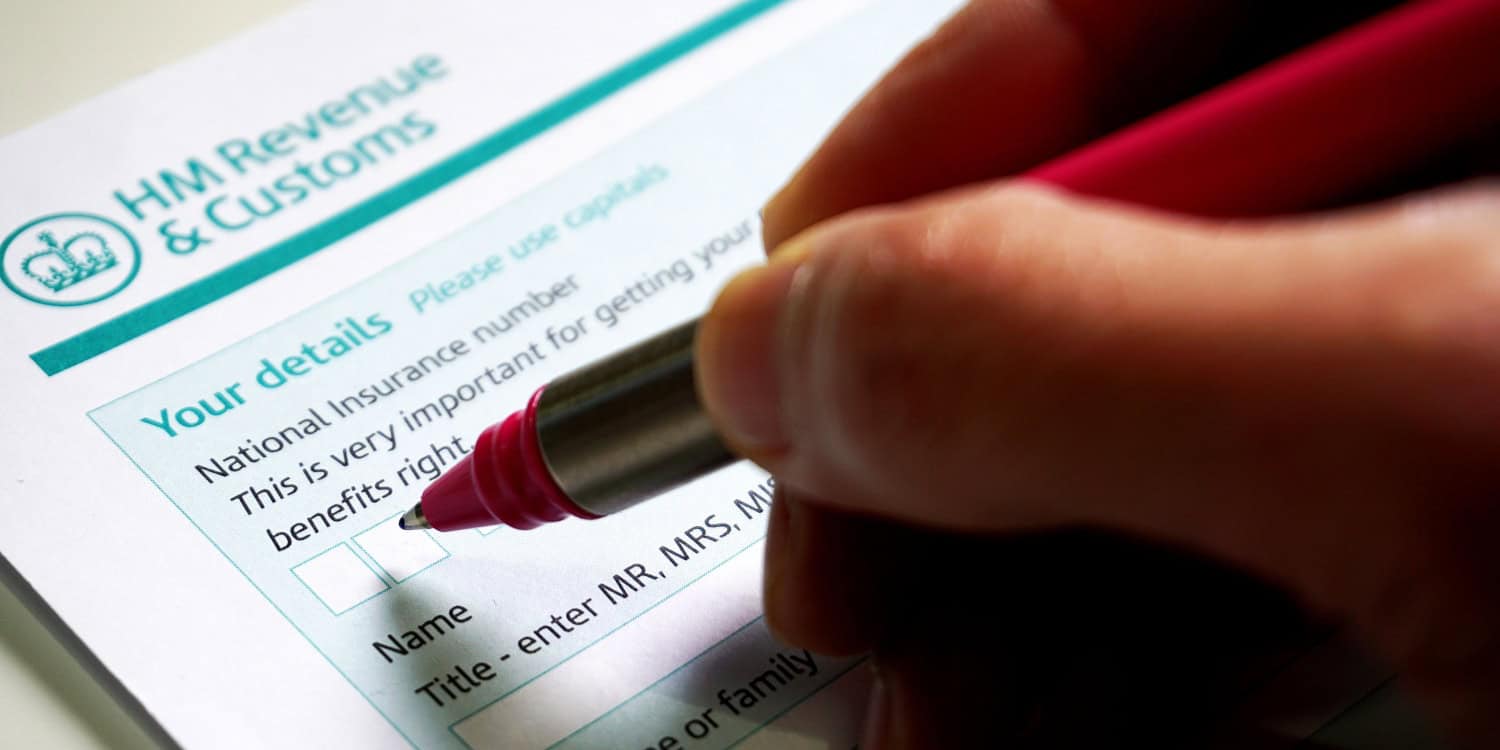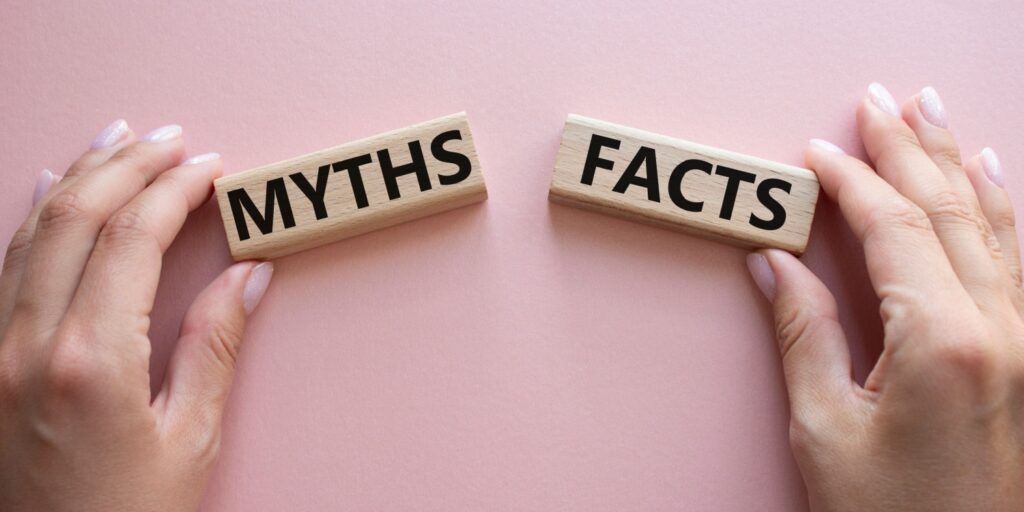If you need to complete a tax return for the 2024/25 tax year and it’s you’re first time doing so, you have until 5 October 2025 to register for Self Assessment with HMRC, the UK tax authority. The deadline for submitting a Self Assessment tax return for the 2024/25 tax year is midnight on 31 October 2025 (if you’re filing on paper) or 31 January 2026 (if you’re filing online). Any tax you owe must also be paid by 31 January 2026.
To help you get started, we’re here to debunk 10 common myths around Self Assessment, including the five recently published by HMRC. From understanding who is responsible for filing tax returns to clarifying the rules on side hustle tax, we shed light on common misconceptions to help prepare you for your next Self Assessment tax return.
Myth 1: “HMRC hasn’t been in touch, so I don’t need to file a tax return.”
Some people think they don’t need to file a Self Assessment tax return if HMRC hasn’t asked them to. In reality, you are responsible for working out whether you need to complete a tax return. That may be the case if you:
- are self-employed and make a gross income of over £1,000 in a tax year
- earned less than £1,000 during the tax year but wish to pay Class 2 National Insurance contributions
- had a total taxable income of more than £150,000 in a single tax year
- received untaxed income over £2,500 (e.g. tips or commission)
- had to pay Capital Gains Tax on disposal of an asset that increased in value
- are a partner in a business partnership
- are subject to the High Income Child Benefit Charge (if you or your partner earn more than £50,000 a year)
- received income from UK property or land
These are just some of the common reasons why you may need to register for Self Assessment. If unsure, use HMRC’s free online tool to check if you need to register for Self Assessment for the 2024/25 tax year.
Myth 2: “I have to pay tax at the same time as filing my return.”
While the deadline for filing an online tax return and paying your bill is 31 January, you don’t necessarily need to do both simultaneously. You could submit your Self Assessment tax return today and pay your bill later (as long as HMRC receives it by 31 January). You can also spread the cost of your Self Assessment bill with a Budget Payment Plan. This lets you make weekly or monthly payments towards your next tax bill.
- Do I need to register for Self Assessment if I run a Ltd company?
- Meet the Self Assessment filing deadline with these top tips
- Can I update my memorandum of association?
Your tax return and tax bill are only due at the same time if you leave both of these tasks until the deadline. We strongly advise against this. If you’re concerned or overwhelmed by preparing your return and paying your tax bill, it’s best to get organised well in advance.
Further, if you miss the Self Assessment payment deadline or can’t afford to pay your tax bill, you should contact HMRC as soon as possible. You may be able to set up a ‘Time to Pay’ payment plan.
Myth 3: “I don’t owe any tax, so I don’t need to file a return.”
The purpose of a Self Assessment tax return is to declare your income to HMRC and calculate your tax liability, if any. You may have nothing to pay, but you must still declare what you’ve earned in the tax year.
In addition, filing a return allows you to claim any tax refunds or reliefs you may be eligible for, such as tax relief on business expenses and pension contributions. If you don’t submit a Self Assessment tax return, HMRC will be unaware that you’re due any refunds or relief.
Myth 4: “HMRC will take me out of Self Assessment if I no longer need to file a return.”
If you no longer need to file a tax return (e.g. you stop being self-employed or your earnings drop below the £150,000 threshold), HMRC won’t be notified automatically. It’s your responsibility to let them know. Otherwise, you will receive reminders to submit a Self Assessment tax return. You may even incur a penalty charge for failing to do so.
As soon as your circumstances change, you must tell HMRC that you’re stopping self-employment. To do so, you’ll need your National Insurance (NI) number and Unique Taxpayer Reference (UTR).
Myth 5: “HMRC has launched a crackdown on people selling their possessions online, and now I will have to file a Self Assessment return and pay tax on items I sold after cleaning out the attic.”
The notion of side hustle tax caused some confusion when HMRC announced the new rules at the start of 2024. Many people are still unsure when they do and don’t have to report their additional income in a Self Assessment tax return.
So, first things first—if you’re simply having a clear-out and you sell a few items you no longer need, that’s not a side hustle, and you’re unlikely to be taxed on those earnings.

However, if you regularly make or buy items and sell them for a profit, that could indicate that you’re trading. In other words, you’re running a business. In this instance, you must file a Self Assessment tax return if your total annual income from trading exceeds £1,000 (before expenses).
Moreover, the ‘crackdown’ concerns online marketplaces, which are now required to collect and report seller information and income to HMRC. But, again, this only applies if the seller surpasses a certain threshold.
So, you don’t need to do anything if you’ve sold a few pre-loved t-shirts on Vinted. But if you’re trading or regularly reselling goods online, you may need to file a Self Assessment, and the online marketplace(s) you use may report your activity to HMRC.
Myth 6: “I’m not a sole trader, so I don’t need to file a tax return.”
Self Assessment is not just for sole traders. We mentioned earlier some of the typical criteria that could mean you need to file a tax return, including if you’re self-employed or earn more than £150,000 a year.
However, you also need to file if you’re a limited company owner and director and you:
- claim allowable expenses
- pay yourself a dividend income of more than £10,000
- receive a director’s loan
- earn taxable income from savings and/or investments
- receive any foreign income
- receive taxable payments from a pension
Filing a tax return doesn’t necessarily mean you’re self-employed. Many circumstances other than self-employment may require you to report your income through Self Assessment.
Myth 7: “It’s fine to file my Self Assessment return at the last minute.”
Filing tax returns at the eleventh hour is incredibly common. For the 2022/23 tax year, a staggering 778,068 people filed a tax return and paid their bill within the last few hours of the day on 31 January 2023. More specifically, 61,549 were filed between 4pm and 5pm, and 32,958 were filed between 11pm and midnight, according to an HMRC press release.
But while it may be common, we strongly discourage it to ensure that things run smoothly. You can and should submit your Self Assessment early. That way, you can avoid registration delays, give yourself plenty of time to prepare your finances, ensure you’re less likely to incur penalties and reduce the stress of tax season.
Myth 8: “I can’t file a Self Assessment tax return without an accountant.”
Filing a tax return (especially your first one) can feel daunting. However, despite common misconceptions, HMRC tries to make the process as simple as possible. In fact, one of the reasons for their fee increases this year was to streamline submissions by urging people to file online rather than by post.
- 13 allowable expenses for limited companies to claim
- 8 working-from-home expenses you should be claiming
- 12 Self Assessment expenses you didn’t know you could claim
But that daunting feeling can make people think it’s too complicated and need an accountant. In reality, many people can prepare and file their Self Assessment tax returns themselves, saving you a lot of money.
The document is arranged into individual sections, each with detailed step-by-step instructions. If you make a mistake or miss something, the digital form automatically notifies you to ensure you don’t submit your tax return with missing information. And if there’s a question you’re unsure about, simply click the question mark next to it for more details.
 If you need more help, there are several resources you could use without paying for an accountant. For instance, you can use specialist accounting software like QuickBooks and Sage or contact the HMRC helpline.
If you need more help, there are several resources you could use without paying for an accountant. For instance, you can use specialist accounting software like QuickBooks and Sage or contact the HMRC helpline.
However, if your situation is complex or you don’t feel equipped to prepare your tax return, you should seek advice and assistance from an accountant.
Myth 9: “I can claim all my expenses back through Self Assessment.”
Not necessarily. If you’re a sole trader, you can claim back various running costs as long as they are incurred for the sole purpose of running your business. Any expenses that overlap between personal and business use, such as your phone bill, must be split, and you can only claim the business portion.
Allowable expenses for self-employed individuals include the following:
- Office, property, and equipment (e.g. stationery, rent, insurance). If you work from home, you can claim ‘simplified expenses’ at a flat rate of up to £26 a month. Or, you can claim the exact amount based on the portion of your home that you use for work
- Travel (e.g. fuel, vehicle insurance, public transport fares, hotel rooms)
- Clothing (e.g. uniforms, protective clothing)
- Staff (e.g. salaries, bonuses, pensions)
- Reselling goods (e.g. raw materials, stock)
- Legal and financial costs (e.g. hiring an accountant or solicitor)
- Marketing (e.g. advertising, running your website, issuing free samples)
- Training (e.g. improving your/your employees’ skills to support your business)
- Unpaid invoices (if you use accrual/traditional accounting rather than cash basis accounting)
Limited companies can claim numerous additional expenses, such as:
- Staff entertainment (e.g. Christmas parties)
- Business mobile phone purchases and contract costs for you and/or your employees
- Bicycle mileage for business journeys (this excludes commuting)
- Certain business gifts
- Charity donations
- Employee and director eye tests
The rules on claiming tax relief on business expenses vary depending on your business structure. So, be sure to check before committing to certain costs assuming you can claim them in your Self Assessment tax return.
Myth 10: “HMRC can’t make me pay tax if I don’t submit a tax return.”
We explained that it’s the individual’s responsibility to file a Self Assessment tax return. However, if you need to submit a return but fail to do so, that doesn’t necessarily mean you won’t be liable to pay any tax.
HMRC can still track your earnings using various resources, such as bank transactions, other tax returns (e.g. VAT and Corporation Tax), and data from other government agencies (e.g. Companies House). They can use these resources to estimate your tax liability if you don’t submit your tax return. Moreover, in certain situations (and sometimes at random), HMRC may open an investigation into your tax affairs.
Failure to deliver your tax return can result in hefty fines and severe penalties. Therefore, to avoid these additional charges, it’s crucial to file your Self Assessment on time and pay the correct amount of tax.
The bottom line
Sole traders, limited company owner-directors, and anyone meeting any other qualifying criteria must submit a Self Assessment tax return to HMRC every year. It can seem a daunting and complicated process. However, we hope that this blog has clarified some of the common myths and misunderstandings and also boosted your confidence about managing the process correctly.
If you have any questions or comments about the topics we’ve covered in this blog, please post them below. A member of our team will respond as soon as possible.
Please note that the information provided in this article is for general informational purposes only and does not constitute legal, tax, or professional advice. While our aim is that the content is accurate and up to date, it should not be relied upon as a substitute for tailored advice from qualified professionals. We strongly recommend that you seek independent legal and tax advice specific to your circumstances before acting on any information contained in this article. We accept no responsibility or liability for any loss or damage that may result from your reliance on the information provided in this article. Use of the information contained in this article is entirely at your own risk.








Join The Discussion
Comments (2)
Thanks for the article! It was helpful learning about these 10 self assessment tax return myths for my own personal tax advisory UK business.
Thank you for your kind comment, David. It’s great to hear you could use this information for your tax advisory business.
Kind regards,
The 1st Formations Team